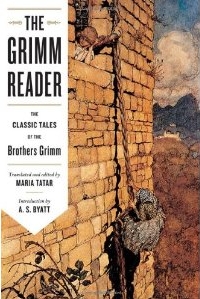- HOME
- INTRO TO THE FORUM
- USE AND MISUSE
- BADLY WRITTEN, BADLY SPOKEN
- GETTING
TO KNOW ENGLISH - PREPARING FOR ENGLISH PROFICIENCY TESTS
- GOING DEEPER INTO ENGLISH
- YOU ASKED ME THIS QUESTION
- EDUCATION AND TEACHING FORUM
- ADVICE AND DISSENT
- MY MEDIA ENGLISH WATCH
- STUDENTS' SOUNDING BOARD
- LANGUAGE HUMOR AT ITS FINEST
- THE LOUNGE
- NOTABLE WORKS BY OUR VERY OWN
- ESSAYS BY JOSE CARILLO
- When It Greatly Matters What English Accent We've Acquired
- A Potent Tool For Whittling Down Complex Sentences Into Simple Ones
- A Unified Approach To The Proper Use Of Punctuation In English
- A Unified Approach To The Proper Use Of Punctuation In English - II
- A Unified Approach To The Proper Use Of Punctuation In English - III
- Steeling Ourselves Against Common Subject-Verb Disagreement Pitfalls
- ABOUT JOSE CARILLO
- READINGS ABOUT LANGUAGE
- TIME OUT FROM ENGLISH GRAMMAR
- NEWS AND COMMENTARY
- BOOKSHOP
- ARCHIVES
READINGS IN LANGUAGE
This new section features links to interesting, instructive, or thought-provoking readings about the English language. The selections could be anywhere from light and humorous to serious and scholarly, and they range widely from the reading, writing, listening, and speaking disciplines to the teaching and learning of English.
Let’s now take a much deeper look at books, acronyms, and fairy tales
We have three very interesting and thought-provoking readings about language this week: the essay “What Are Books Good For?” by William Germano, dean of the faculty of humanities and social sciences at Cooper Union for the Advancement of Science and Art; “OMG, ETC,” an essay that looks into the rise of the acronym, by Robert Lane Greene, international correspondent for The Economist; and “The Storytellers,” a review by University of Maryland professor Ellen Handler Spitz of The Grimm Reader: The Classic Tales of the Brothers Grimm as translated and edited by Maria Tatar.
Reading digitally is also a scroll-like engagement. In “What Are Books Good For?”, an article written for the September 26, 2010 issue of The Chronicle Review of Higher Education based on a talk Germano presented last summer to the Association of American University Presses, the author makes a vigorous defense of the book as we know it against the relentless assaults by the emergent digital form that, he contends, frees the printed book from its materiality. “The static text image on my desktop is the electronic cousin of late antiquity’s reading invention,” he says. “When my screen is still, or when I arrange text into two or four pages, like so much visual real estate, I am replicating a medieval codex, unbinding its beautifully illuminated pages. Yet reading digitally is also a scroll-like engagement—the fact that we ‘scroll down’ connects us to a reading practice that dates back several millennia.” But whether published on paper or disseminated digitally, Germano argues, “If we can get them right, books are luminous versions of our ideas, bound by narrative structure so that others can encounter those better, smarter versions of us on the page or screen. Books make the case for us, for the identity of the individual as an embodiment of thinking in the world.”
Read William Germano’s “What Are Books Good For?” in The Chronicle Review now!
Perhaps just a quintessentially modern annoyance. In “OMG, ETC,” an article he wrote for the Autumn 2010 issue of Intelligent Life Magazine, Greene bewails the prevalence of acronyms like “OMG” (for “Oh, my God!”) and “LOL” (for “Laughing out loud”) in today’s day-to-day communication. “Acronyms have become so ubiquitous that we look for them even where they don’t exist,” he says. “They are a major source of the folk etymologies that ping around the internet, etymologies for words that aren’t actually acronyms. ‘Fuck’ isn’t short for ‘for unlawful carnal knowledge’, ‘posh’ has nothing to do with ‘port out, starboard home’, and a ‘tip’, while it might be to insure promptness, certainly doesn’t derive its name from that phrase.” Greene says acronyms “may be a quintessentially modern annoyance, fooling us into thinking we have a greater grip on life’s complexities than we really do.” In the end, however, he concedes that acronyms are simply tools, “no better or worse than the people who enliven or burden our lives with them.”
Read Robert Lane Greene’s “OMG, ETC” in Intelligent Life Magazine now!

Smoky mirror of hidden aspects of children’s lives. In “The Storytellers,” a review in the September 30, 2010 issue of The New Republic of the new translation of The Grimm Reader: The Classic Tales of the Brothers Grimm (W.W. Norton & Company, 368 pages), Handler says that the translator, Maria Tatar, has given the book a “mischievous title,” one that “reminds us that, in the wake of global terrorism, parents and teachers are questioning ever more nervously what sort of tales we ought to be telling children and why.” But then Handler believes that their fears are largely unjustified. She thinks the tales of the Brothers Grimm match the way children think with an almost miraculous precision. “They transform contiguity into causality, and they maximize contrast,” she says. “Their smoky looking glasses mirror, to our glossy, high-tech, twenty-first century children, hidden aspects of their own inner lives, buried treasure all too rarely tapped. I cannot understand those who deem these fairy tales unsuitable for children, and those who would purge them of their so-called inappropriate elements. If they find these old tales powerful enough to require censorship, then perhaps they themselves have not outgrown them.”
Read Ellen Handler’s “The Storytellers” in The New Republic now!
Click to read comments or post a comment
View the complete list of postings in this section
(requires registration to post)






